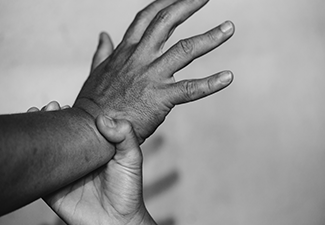Defenses Against Student Misconduct Allegations
June 14, 2022
 Attending college should be an exciting time where students are free to learn and grow into productive members of society. However, some students may get into a situation where they’ve been accused of misconduct and must then defend themselves against these allegations. Any academic or sexual misconduct charges should be taken very seriously, and there’s a good reason for this. According to a 2019 study conducted by the Association of American Universities, nearly a third (31%) of USC female students reported having been sexually assaulted on campus.
Attending college should be an exciting time where students are free to learn and grow into productive members of society. However, some students may get into a situation where they’ve been accused of misconduct and must then defend themselves against these allegations. Any academic or sexual misconduct charges should be taken very seriously, and there’s a good reason for this. According to a 2019 study conducted by the Association of American Universities, nearly a third (31%) of USC female students reported having been sexually assaulted on campus.
If you’ve been accused of sexual or academic misconduct and are concerned about the consequences for your future, call me today to talk about your options. I started my practice—the Law Office of Alec Rose PC—over 25 years ago with the goal of doing what’s best for my clients and forming lasting relationships. You deserve to have your rights protected. If you’re in the Los Angeles, California area or attend schools in the area such as UCLA, the Claremont Colleges, Cal-Tech, USC, or UC Berkeley, reach out today for help.
What is Student Misconduct?
Student misconduct is a broad term that can include criminal offenses, violating college rules and policies, plagiarism or other academic violations, or endangering the health and wellbeing of fellow students or faculty. Because there are so many interpretations, it’s useful to divide them into the two main categories that commonly see legal action: academic and sexual misconduct.
Academic misconduct is also sometimes referred to as academic dishonesty and can refer to plagiarism, cheating, contract cheating (when another person or student completes a portion or all of your work for you), falsifying research, altering documents, sharing course materials, or reusing content that you’ve completed previously. In all these cases, there is an attempt to create an academic advantage for oneself through prohibited actions. Depending on the severity of your actions and whether you’ve been accused of misconduct before, the possible penalties will vary greatly. In some cases, you’ll simply have to redo the assignment or assessment, while in other cases, you may have to accept a zero grade without the opportunity to redo it. In other instances, it may mean failing the course altogether or even risking your ability to remain a student in good standing which can jeopardize your future.
Unfortunately, the other most common charge seen against students is sexual misconduct. Broadly speaking, sexual misconduct is any unwanted sexual activity that occurs on or near campus. This could include charges as serious as rape but also can include innapropriate touching, molestation, sexual conduct with a minor, or sexual harassment. Under Title IX, universities themselves are responsible for protecting the rights of victims. If you’ve been accused of sexual misconduct, you should contact a criminal defense attorney immediately.
Possible Defenses for Academic Misconduct
There are many instances where a student may have been accused of academic misconduct but in fact, has a reasonable defense. However, just because you believe you’re innocent does not mean that you shouldn’t take the charges seriously. You’ll still need legal assistance building a defense on your behalf. In the case of plagiarism, perhaps it was entirely accidental. Many times students lack the proper skill for referencing and citation and will inadvertently plagiarize. Or maybe you were coerced into performing illegal actions such as changing a student record or sharing course materials. Lastly, you may have been accused by mistake and have actually done nothing wrong.
Possible Defenses for Sexual Misconduct
Accusations of sexual misconduct will likely be more consequential, so you should be aware of all your possible defenses. Unfortunately, these charges can come up frequently among college students, where partying and alcohol are involved. In these occurrences when both parties are impaired, it can be difficult to determine consent. One person may legitimately believe they’ve received consent and that the interaction was consensual when in fact it was not. In other cases, you may also be actually innocent of any wrongdoing completely and the victim has misidentified you. Finally, although this defense is infrequently used, you may be able to put forth an insanity plea, claiming you weren’t in a stable mental state when the incident occurred. The most important step you can take for yourself is to contact a local attorney with experience working with student sexual misconduct cases.
Get Reliable Representation Today
College students have so much to worry about these days—from getting into a good school to financing their education to everything in between. When you add on top of that charges of student misconduct, students need to seek professional legal help to minimize the negative impacts on their education and their future. If you’re a student in the Los Angeles, California area and would like to speak with an attorney about concerns you have about recent allegations or charges, call me at the Alec Rose Law Office today.
